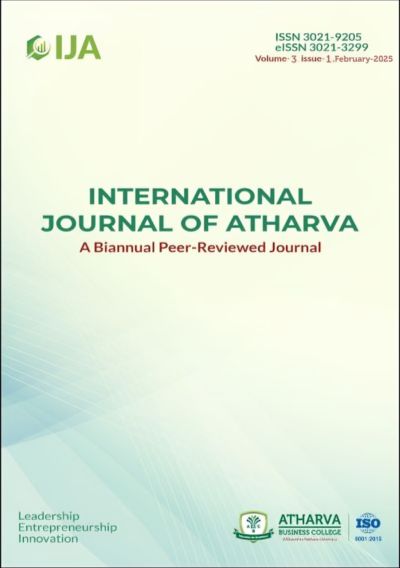Exploring the Role of Education (Formal and Informal Learning) in Shaping Climate Change and Disaster Awareness in Sarawal Rural Municipality, Nepal
DOI:
https://doi.org/10.3126/ija.v3i1.76710Keywords:
Climate Change, Climate Induced Disasters, Vulnerability, Flood, EducationAbstract
Over the past two decades, environmental temperatures have risen significantly, directly influencing climate change. Climate change (CC) and climate-induced disasters have extreme impacts on human beings and their occupations. In Nepal, the frequency of weather-related extreme events has doubled in the last two decades. Although Nepal contributes a negligible amount of greenhouse gases compared to industrialized nations, its people face severe challenges from climate change and its associated disasters. Vulnerable people are disproportionally affected by climate change. Nepal has been losing a high percentage of GDP due to flood, landslides and other types of disasters. Education has a crucial role in developing individuals' understanding of climate change, its impacts, and the significance of preparedness, risk reduction, and timely response measures.
The southern region of Nepal is particularly vulnerable to climate-sensitive hazards such as floods, fires, droughts, heatwaves, and vector-borne diseases. Sarawal Rural Municipality in Nawalparasi West has been repeatedly affected by disasters like floods, fires, and droughts. Acknowledging these challenges, this study investigates the perceptions of 428 households of ward no 5, 6 and 7 with diverse educational backgrounds about climate change and its impacts. The analysis is based on their responses to eight key assertions, ranked via a five-point Likert scales.
Findings reveal a sound association between education level and understanding of climate change and climate-induced disasters. Interestingly, both literate and illiterate respondents acknowledged these impacts, likely due to firsthand experiences, as most of the respondents are farmers. The respondent cohorts included individuals with no education at all (illiterate) and no formal education (literate), those with primary-level education, and those with high school education or above. Notably, illiterate individuals—primarily engaged in agriculture—expressed higher agreement either strongly agree or agree on the effects of climate shift and disasters compared to respondents having higher educational backgrounds. Therefore, when designing and implementing climate change and disaster-related interventions, it is essential to consider education levels, real-life exposure, and lived experiences.
Downloads
Downloads
Published
How to Cite
Issue
Section
License
Copyright (c) 2025 Pitambar Aryal, Meenu Gangal, Tej Bahadur Karki

This work is licensed under a Creative Commons Attribution-NonCommercial 4.0 International License.





